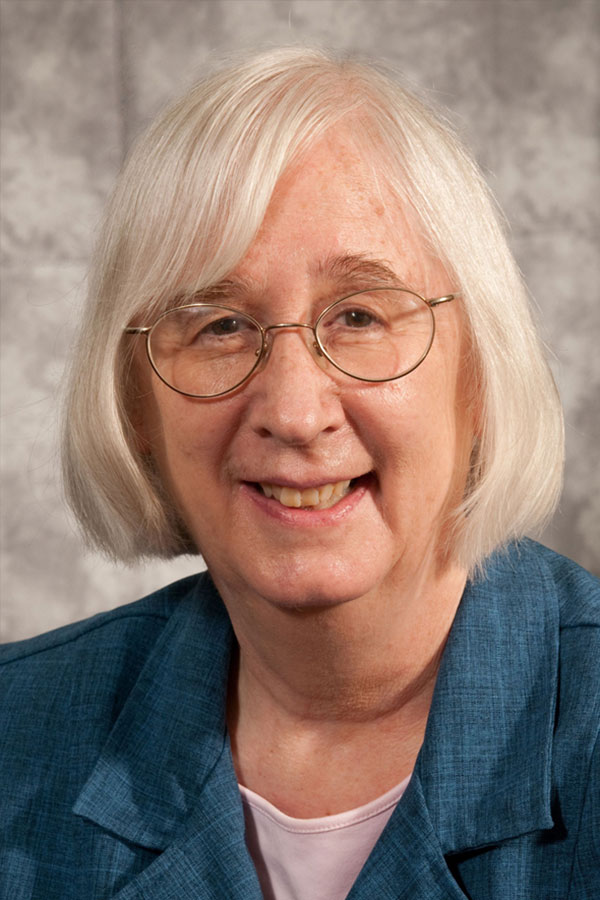 As an adjunct professor, Sister Mary Beth Reissen has collaborated with colleagues at Webster University, in St. Louis, in designing and teaching a college-level course on human trafficking, entitled Contemporary Slavery Human Trafficking. The course is offered at Webster University as part of the university’s Global Citizenship program for undergraduates.
As an adjunct professor, Sister Mary Beth Reissen has collaborated with colleagues at Webster University, in St. Louis, in designing and teaching a college-level course on human trafficking, entitled Contemporary Slavery Human Trafficking. The course is offered at Webster University as part of the university’s Global Citizenship program for undergraduates.
“It’s important that students understand the nature and gravity of human trafficking—both sex and labor trafficking,” emphasizes Sister Mary Beth. “Most students do not realize that human trafficking is so pervasive. They need to recognize the signs of human trafficking and the laws that prohibit such behavior.”
“Indeed, a course on human trafficking is needed to help unmask a multi-billion-dollar criminal industry present in communities all over the world, including college campuses. Human trafficking happens to people in all walks of life and in all types of communities, ranging from girls and women forced into prostitution to men working in a kitchen, construction or landscaping,” said Sister Mary Beth.
Sister Mary Beth explains, “Some of the students shy away from the topic at first. It is difficult to come face-to-face with the reality of human trafficking. Most students have come from sheltered lives and communities. However, as their awareness about the issue builds, they see the need for action.”
With approximately 20 students in each of her classes, “about one-fourth” of the students are male. She notes, “While some might be surprised to hear male students do take the course, these students were deeply concerned about the issue and seriously committed to work to end human trafficking.”
She explains that students in the Contemporary Slavery Human Trafficking course begin by studying the human trafficking definition. They learn that varying degrees of exploitation are involved and trafficked victims experience pervasive feelings of disposability. Students come to grips with International Labour Organization findings:
40.3 million people are trafficked annually. Human trafficking includes: domestic work, construction, agriculture, sexual exploitation and forced marriages. There are 5.4 victims of human trafficking for every 1,000 people in the world. One in four victims of human trafficking is a child. Women and girls are disproportionately affected by forced labor, accounting for 99% of victims in the commercial sex industry. Traffickers use violence, threats, deception, debt bondage and other manipulative tactics to trap victims in human trafficking. (Source: http://www.ilo.org/global/topics/forced-labour/lang--en/index.htm)
Sister Mary Beth notes that before attending the class, many students associate human trafficking primarily with sexual exploitation. She finds that many students are surprised at how people from all walks of life are trafficked. “I share with them my past experience in Iowa with migrant farm laborers,” she said. There was a whole network set up for seasonal workers who did not receive just wages, adequate housing or health care.”
After confronting the gravity and pervasiveness of human trafficking, students learn about the ways in which this problem is being addressed globally, nationally and locally. Globally, they see the need for United Nations member states (including the United States) to enforce the Protocol to Prevent, Suppress and Punish Trafficking in Persons, Especially Women and Children. They find that the United States has adopted landmark legislation, the Trafficking Victims Protection Act. Locally, students become familiar with community-based organizations that address the problem of human trafficking either on the restorative (victim rehabilitation) side or the preventive side. Students work in groups of two or three to interview a person that has leadership responsibility in a given local organization.
Building on the knowledge they have gained, students collaborate in designing an awareness project. Students must either challenge human trafficking or provide assistance to human trafficking victims.
“All of us need to look around at our surroundings,” Sister Mary Beth encourages. “Look at the people cutting the lawns, trimming the hedges, cooking in the kitchen and serving your food. Trafficking is pervasive. It affects children and adults. The poor, middle class and wealthy.”
“Consider your own situation,” she urges, “and ask: ‘How can I combat this evil of human trafficking?’ Then write down ‘I will commit to…’ and fill in the blank. Think about it. What can you do? You cannot do it all, but you can do something. Get educated. Find a group you can support. Write your legislator. Just commit and follow through. And don’t forget to pray for an end to human trafficking. Prayer works.”
The School Sisters of Notre Dame will host Women’s Leadership Luncheons in St. Louis, Dallas, St. Paul and Milwaukee in the spring of 2019. The lunches are focused on human trafficking, including: the causes, who is targeted and what is being done to eradicate it. Attendees will gain an understanding of SSND’s stance on human trafficking and what sisters are doing to remedy the problem. The luncheon is free.
To register for a lunch near you